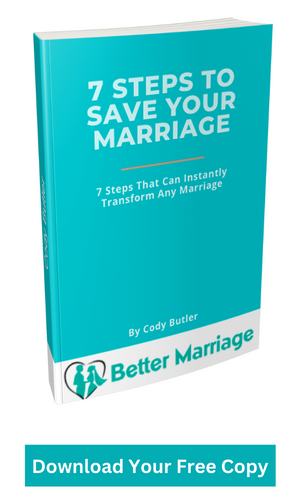If you’re looking to become a relationship counsellor or seek counselling services in Australia, it’s important to understand the legal requirements that must be met when providing marriage counselling services. From qualifications and registration standards to the confidentiality of records and client interactions, understanding the legal framework is essential for offering ethical services within Australia.
We will explore some fundamental principles you need to know about providing professional marriage counselling in Australia to ensure your practice meets legal requirements.
Marriage Counselling Legal Requirements In Australia
The legal requirements for marriage counselling in Australia depend on your state or territory. Depending on the jurisdiction, you must be registered as a counsellor with a professional regulatory body such as the Australian Counselling Association (ACA) or the Australian Psychological Society (APS). Each of these bodies has its standards and codes that practitioners must follow.
Anyone who provides marriage counselling must meet the educational and professional accreditation requirements for registering with their chosen professional body.
To become accredited as a marriage counsellor, you must complete a relevant tertiary qualification in psychology, social work, family therapy, or another related field. Once this has been achieved, extensive supervised practice and additional qualifications may be needed to meet the full accreditation requirements.
Different types of marriage counselling available in Australia
In Australia, many different types of marriage counselling are available. Depending on your needs and the type of relationship counselling you wish to provide:
Couples therapy
This type of marriage counselling focuses on helping couples to resolve conflicts and build strong, healthy relationships.
Family therapy
This type of counselling aims to resolve family issues and improve communication among family members.
Individual counselling
This type of marriage counselling explores the individual’s thoughts, feelings, and behaviours and aims to improve self-awareness, problem-solving skills, and decision-making.
Pre-marriage counselling
This type of marriage counselling helps couples understand their relationship’s impact on each other and prepare for married life.
No matter the type of marriage counselling you provide, you must operate within a professional code of conduct and ensure that all legal requirements are met.
Legal Requirements for Marriage Counselling in Australia
When providing marriage counselling services in Australia, certain legal requirements to marital practice. These include:
- Maintaining client confidentiality: All records must be kept confidential and only shared with relevant parties where necessary.
- Obtaining informed consent from clients before conducting any assessments or therapies. It includes providing clients with information about the type of counselling offered and any potential associated risks.
- Maintaining professional standards: Counsellors must adhere to their profession’s Code of Conduct, ethical framework, and registration requirements. This includes continuing education courses to maintain knowledge and understanding of best practices.
- Complying with relevant laws and regulations: Practitioners must ensure that all services are delivered within the scope of relevant legislation, such as the Privacy Act 1988 (Cth) and Australian Professional Standards for Counsellors.
By meeting these legal requirements, marriage counsellors in Australia can ensure they provide ethical, safe, and effective services for couples seeking counselling support. It is also important to remember that the requirements may vary from state to state, so it is always beneficial to familiarise yourself with the laws and regulations in your area.
Marriage counselling can be rewarding for those passionate about helping couples build strong, healthy relationships. By understanding the legal requirements of marriage counselling services in Australia, counsellors can ensure their practice meets professional standards and offer ethical services that benefit clients.
With this knowledge, you will be well-placed to provide relationship support that makes a positive difference in people’s lives.
Qualifications and Certifications are Required to Offer Marriage Counselling Services in Australia
To offer professional marriage counselling services in Australia, counsellors must meet their respective professional bodies’ educational and registration standards. This typically includes completing a relevant tertiary qualification in psychology, social work, family therapy, or another related field.
Depending on your state or territory, you may also need to be registered with an accrediting body such as the Australian Counselling Association (ACA) or the Australian Psychological Society (APS). In some cases, additional qualifications and supervised practice may also be required to become fully accredited.
Before offering marriage counselling services, you must check with your chosen professional body what specific requirements you must meet.
All counsellors must operate within a professional code of conduct and comply with all relevant laws and regulations.
This includes adhering to the Australian Professional Standards for Counsellors, maintaining client confidentiality, and obtaining informed consent from clients before conducting any assessments or therapies.
Benefits of professional, qualified marriage counsellors for couples seeking help
Professional, qualified marriage counsellors can provide couples with many benefits when seeking help for their relationship. Here are seven of the main benefits:
- Professional guidance – Qualified marriage counsellors can provide couples with professional advice and guidance on resolving conflicts healthily. This is especially useful for couples who may not be aware of the best strategies to resolve arguments or bridge communication gaps.
- Improved communication – Marriage counselling sessions can help couples learn better communication skills, allowing them to express themselves clearly and discuss difficult issues without feeling emotional.
- Increased understanding – Counselling helps partners gain a deeper understanding of one another’s thoughts, feelings, and behaviours, which in turn helps them accept and appreciate each other’s differences.
- Identifying underlying issues – Professional counsellors can help couples identify any underlying issues contributing to their relationship troubles, such as childhood trauma or unresolved conflicts in previous relationships.
- Improved trust – Marriage counselling sessions provide a safe space for partners to open up about their feelings and rebuild trust.
- Strengthened commitment – Counselling can also help couples to re-establish boundaries and build a stronger connection, creating a renewed sense of commitment in the relationship.
- Access to resources – Marriage counsellors are usually connected with local networks of therapists who can provide additional support and resources such as books and online support groups.
All couples can benefit from professional, qualified marriage counselling to strengthen their relationship and build a healthier, more fulfilling connection. Counsellors must ensure they meet all legal requirements before offering services, as this will assure couples that they receive safe and ethical practices.
How Laws and Regulations Protect Couples Seeking Marriage Counselling in Australia
The legal requirements for marriage counselling are important in ensuring the safety and well-being of couples receiving professional help. In Australia, practitioners offering marriage counselling services must adhere to relevant laws and regulations set out by their professionals. This includes complying with the Privacy Act 1988 (Cth) and Australian Professional Standards for Counsellors.
By adhering to these standards, counsellors can ensure they provide ethical and safe services that benefit couples seeking help. It is also beneficial for practitioners to familiarise themselves with the laws and regulations in their state or territory, as these may vary from place to place.
Family law matters such as divorce proceedings must typically be handled through a court process rather than marriage counselling sessions. Therefore, counsellors need to be aware of the boundaries between providing counselling services and offering advice on family law matters.
FAQS
Do Counsellors need to be registered in Australia?
Yes, counsellors offering marriage counselling services in Australia must meet their professional bodies’ educational and registration standards. This typically includes completing a relevant tertiary qualification in psychology, social work, family therapy, or another related field.
How much do counsellors charge per hour in Australia?
Marriage counselling costs vary depending on the counsellor’s qualifications, experience, and location. Counsellors charge approximately $150 per hour for a one-on-one session.
What is the success rate of marriage counselling in Australia?
The success rate of marriage counselling in Australia varies depending on the individual couple and their situation. Studies have shown that couples who follow through with a recommended course of therapy can experience positive outcomes regarding relationship satisfaction, communication skills, and conflict resolution.
Which country has the highest divorce rate?
The United States has the highest divorce rate in the world, with around 50% of marriages ending in divorce. This is followed by Russia (44%) and Brazil (42%).
What is the future of counselling in Australia?
The demand for counselling services in Australia will grow over the coming years. Various factors contribute to this, such as increased mental health issues and a growing awareness of the importance of seeking support for relationship difficulties.
Which country is hardest to get a divorce?
Divorce is generally most difficult to obtain in countries where the law strongly restricts it, such as the Philippines and Vatican City. Religious beliefs can also make divorce difficult in some countries, such as Malta and the Dominican Republic.
What makes a marriage invalid in Australia?
A marriage is invalid in Australia if it does not meet legal requirements, such as if one person is already married or the couple is too closely related. Other factors that could invalidate a marriage include a lack of formal paperwork and failure to provide accurate information on the application form.
What marriages are prohibited in Australia?
Marriages between relatives, including siblings and first cousins, are prohibited in Australia. In some states, same-sex marriage is also prohibited. Marriages where one of the parties is under 18 or not of sound mind, are also invalid.
How long is marriage counselling?
The length of marriage counselling depends on the couple’s needs and can range from a few sessions to ongoing counselling over several months. Discussing your expectations with your counsellor is important to ensure you get the most out of each session.
Conclusion
In conclusion, it is important to understand the legal requirements for marriage counselling in Australia. This is vital for couples before and during their journey of marriage counselling as it can help them take the necessary steps to navigate any potential legal implications down the road.
The law varies from state to state, but all states have some level of requirement for counsellors providing marriage counselling services. Researching and confirming relevant information with your local government or a qualified lawyer is important.
Lastly, please remember that marriage counselling can be an invaluable resource during challenging times when couples are working towards a more positive relationship.







